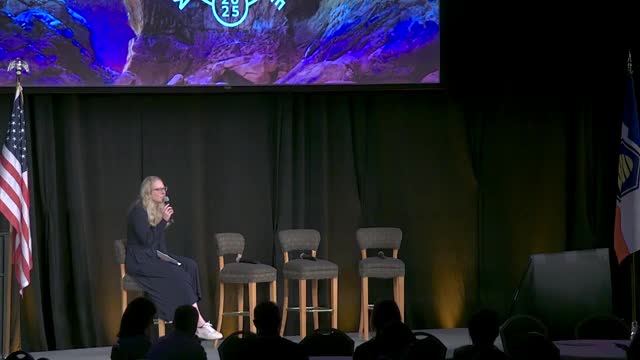League panel urges cities to build relationships with legislators, use local expertise
Get AI-powered insights, summaries, and transcripts
Subscribe
Summary
Panelists at a Utah League of Cities and Towns session described the heavy lift of legislative sessions, warned about unintended consequences of changing statutes and urged city officials to cultivate legislator relationships, share technical expertise and use coordinated communications.
Panelists at the Utah League of Cities and Towns discussed how city officials and staff can more effectively work with state legislators and the League during the legislative session.
The discussion, led by a moderator and featuring Krista Hinton, second vice president of the Utah League and a Santa Clara City Council member; Jared Tingey, a League attorney; and Cassidy Hansen, the League’s marketing communications manager, focused on what city officials should expect during the session and how to influence outcomes without unintended consequences.
The panel emphasized the amount of work league staff put into the session. “The sheer amount of time, energy, blood, sweat, [and] tears that goes into the legislative session by our league staff,” Krista Hinton said, adding that many meetings happen early in the morning and legislation is drafted and revised rapidly. Hinton urged city officials to use League communications — including Friday update emails and action alerts — to track and respond to bills.
Jared Tingey, who previously worked as a deputy county attorney and as a senior assistant city attorney, warned that changing statutes can trigger broader legal consequences. Citing experience with the Governmental Immunity Act while at a city, he said, “I had no idea how difficult it is and how many different variations or variables that come into play just to get one line of code in, to change the law.” He recommended identifying modest, targeted fixes rather than opening entire statutes without considering downstream effects.
Panelists gave practical advice for building influence at the Capitol. Cassidy Hansen urged officials to be accessible and helpful to legislators: “Invite them to things. Invite them to city events where they can be seen by their constituents. You want to be helpful for them.” She also suggested cities focus on the communication channels their residents actually use — whether that is email, social media or local signage — rather than trying to adopt every platform.
Krista Hinton recommended that city councils and managers meet with their legislators both before and after the session. She said post-session meetings give officials an opportunity to hold legislators accountable for actions taken during the session and to discuss passed bills.
The panel repeatedly encouraged cities to share technical expertise with the League. Tingey said building-department staff from member cities had been “instrumental in pushing back” on proposals during the session because they could “talk the talk” and point the League to the right technical details.
Speakers also noted that local officials possess political capital within their jurisdictions that can be used to support League advocacy at the state level. Hansen said that may require careful stewardship: local relationships can be strained and political capital is not unlimited.
The panel suggested concrete steps for officials: know the form of government and local code (because those affect implementation); invite legislators to local events; keep a reliable communication channel to residents; attend League briefings and LPC meetings; and respond to League action alerts when appropriate.
The session closed with reminders that collective, coordinated contact with legislators does influence outcomes. Tingey said coordinated communications from cities and the League “softens and softens and softens” opposition at the Capitol and can change the outcome of debates.
No formal actions or votes were taken during the panel discussion.
